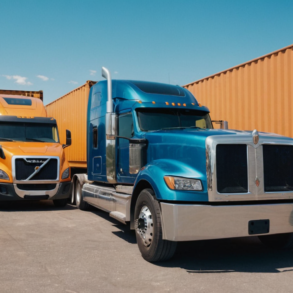Moving to a new home is often associated with excitement and new beginnings. However, the process of relocating can also generate a significant environmental footprint due to packing materials, transportation emissions, and waste disposal. In recent years, there has been a growing trend towards eco-friendly moving practices, aimed at reducing this impact on the planet. One individual leading the charge in this movement is Chris Townsend, a seasoned mover with a passion for sustainability. Here, we explore three of Townsend’s strategies for achieving a greener relocation. To visit for more Information about this Company https://threemovers.com/
Minimalist Packing Approach
Townsend advocates for a minimalist packing approach, emphasizing the importance of decluttering and downsizing possessions before a move. By reducing the number of items to be transported, less packing material is required, and smaller vehicles can be utilized, thereby minimizing carbon emissions. Additionally, donating or selling unwanted items ensures they find new homes instead of ending up in landfills. Townsend recommends conducting a thorough inventory of belongings and prioritizing only essential items for relocation, thereby lightening the environmental load of the move.
Reusable Packing Materials
Traditional moving involves the extensive use of cardboard boxes, bubble wrap, and packing peanuts, which contribute to waste generation and environmental degradation. In contrast, Townsend advocates for the use of reusable packing materials to minimize waste. This includes alternatives such as sturdy plastic bins, eco-friendly packing peanuts made from biodegradable materials, and blankets or towels for wrapping fragile items. By investing in durable packing materials that can be used multiple times, movers not only reduce their environmental impact but also save money in the long run. Townsend encourages individuals to seek out environmentally conscious moving companies that offer these sustainable alternatives.
Carbon-Neutral Transportation
One of the most significant contributors to the environmental footprint of moving is transportation emissions. Traditional moving trucks often run on fossil fuels, releasing greenhouse gases into the atmosphere. To address this issue, Townsend recommends opting for carbon-neutral transportation options whenever possible. This could involve hiring moving companies that utilize electric or hybrid vehicles powered by renewable energy sources. Additionally, individuals can offset the carbon emissions associated with their move by purchasing carbon credits or donating to reforestation projects. By prioritizing carbon-neutral transportation, movers can significantly reduce the environmental impact of their relocation.
Digital Documentation and Communication
In today’s digital age, there are ample opportunities to minimize paper waste during a move. Chris Townsend emphasizes the importance of digitizing documentation and communication wherever possible. Rather than printing out paperwork such as moving contracts, inventory lists, and receipts, movers can opt for electronic formats. Utilizing cloud storage solutions or email for sharing important documents reduces the need for printing and subsequently discarding paper. Furthermore, communication with moving companies, utility providers, and other stakeholders can be conducted via email or phone calls instead of traditional mail. By embracing digital alternatives, movers not only reduce their environmental impact but also streamline the moving process for greater efficiency.
Upcycling and Repurposing
Another eco-friendly strategy championed by Chris Townsend is the concept of upcycling and repurposing packing materials. Instead of immediately discarding packing materials after unpacking, movers can find creative ways to give them a second life. For example, cardboard boxes can be broken down and used for storage or crafting projects. Bubble wrap and packing peanuts can be saved and reused for future moves or donated to local businesses or individuals in need. By extending the lifespan of packing materials through upcycling and repurposing, movers reduce the demand for new resources and contribute to waste reduction efforts. Townsend encourages movers to think creatively about how they can repurpose packing materials in their new homes or communities.
Supporting Sustainable Moving Companies
In addition to individual actions, Chris Townsend emphasizes the importance of supporting moving companies that prioritize sustainability. When selecting a moving company, movers should inquire about their environmental practices and commitment to sustainability. This includes assessing their use of fuel-efficient vehicles, recycling policies, and carbon offsetting initiatives. By choosing to work with environmentally conscious moving companies, movers can align their values with their relocation process and contribute to the growth of sustainable business practices within the moving industry. Townsend encourages individuals to research and support companies that demonstrate a genuine commitment to minimizing their environmental impact.
Green Cleaning Products
Before vacating the old home and settling into the new one, there’s often a need for cleaning. Chris Townsend recommends using eco-friendly cleaning products during this process to minimize the introduction of harmful chemicals into the environment. Many conventional cleaning products contain toxic ingredients that can pollute the air and waterways when disposed of improperly. Opting for environmentally friendly alternatives, such as plant-based cleaners or homemade solutions using ingredients like vinegar and baking soda, reduces the ecological impact of cleaning activities. Additionally, choosing products with minimal or recyclable packaging further reduces waste generation.
Conclusion
Chris Townsend’s strategies for eco-friendly moving offer practical and effective solutions for minimizing the environmental footprint of relocations. By adopting a minimalist packing approach, utilizing reusable packing materials, and prioritizing carbon-neutral transportation, individuals can make a positive contribution to sustainability while transitioning to a new home. As awareness of environmental issues continues to grow, incorporating these practices into the moving process will become increasingly important in preserving the planet for future generations. Through small yet impactful actions, movers can play a significant role in building a greener, more sustainable future.









